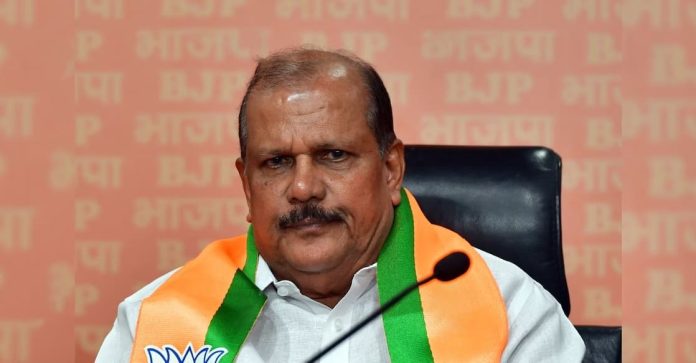In yet another instance of divisive rhetoric aimed at stirring communal sentiments, former Kerala MLA and Bharatiya Janata Party (BJP) leader PC George has made an unfounded and controversial statement falsely claiming that India’s first Prime Minister, Jawaharlal Nehru, was a Muslim — a remark that observers say reflects deep-seated prejudice and an attempt to vilify both Muslims and secular political icons, reported the Maktoob Media.
George, addressing the media on Wednesday, alleged, “Jawaharlal Nehru, a Muslim, is the first accused responsible for ruining this country. Everyone says that Nehru’s grandfather was a Muslim. Though Nehru claimed to be an atheist, he used to secretly offer namaz five times a day. Read MM Mathai’s book to know the truth.”
The claim, however, has no basis in fact and has been widely condemned by historians, political analysts, and members of civil society. Nehru was born in 1889 into a Kashmiri Pandit family—Hindu Brahmins from Kashmir—and consistently identified as a secular and rationalist leader throughout his life. His autobiography Toward Freedom clearly outlines his irreligious worldview: “I am not a man of religion and I do not consider myself a religious person in the usual sense of the word… I am a pagan at heart, with a strong flavouring of rationalism.”
Muslim groups and rights activists have strongly condemned George’s statement, stating that such remarks are part of a larger pattern of demonising the Muslim community by linking them with fabricated accusations and false narratives.
“It’s not about calling someone Muslim — it’s about why it’s being said and the malicious intent behind it,” said a scholar based in Delhi. “George is attempting to portray being Muslim as something negative, while spreading historical lies. This is not just about Nehru—it’s a dog whistle aimed at deepening hatred against Muslims.”
Activists argue that such statements reflect a dangerous tactic: using Islamophobic narratives to tarnish the legacies of leaders who championed secularism and unity, and to sow suspicion toward India’s religious minorities. They say this is especially alarming at a time when Muslims across the country are already facing marginalisation, surveillance, and frequent vilification by some political figures and media platforms.
George’s reference to MM Mathai’s writings further weakens his argument. Mathai’s books—riddled with unverified claims and dismissed by serious historians—have long been considered unreliable and politically motivated.
This is not the first time George has courted controversy with inflammatory remarks. He has often targeted Muslim communities and opposition parties with provocative statements, contributing to a climate of fear and communal polarisation. Critics believe his latest comments are part of a calculated strategy to stoke division and distract from pressing governance issues.
In a diverse and democratic country like India, such baseless communal narratives not only distort history but also threaten the very fabric of national unity. Muslims and secular voices across the nation are calling for greater accountability and responsible political discourse.
As one social media user aptly put it, “Spreading lies about someone’s religion to malign their legacy is not just fake news—it’s hate speech disguised as opinion.”




